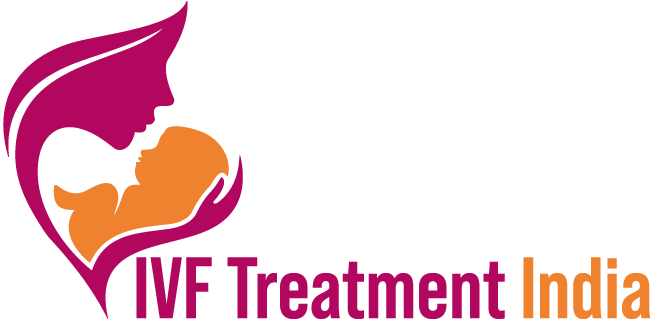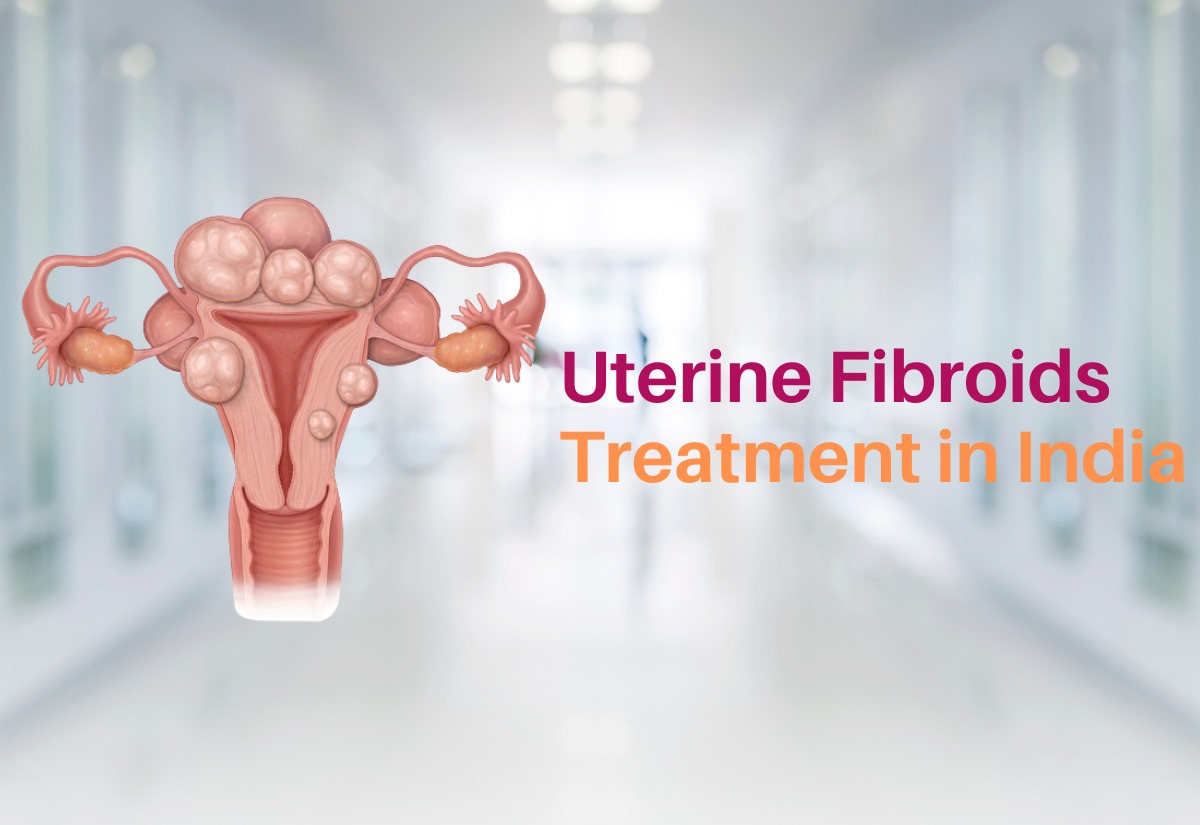Uterine Fibroids Treatment in India: Safe, Affordable, and Highly Effective
Uterine fibroids are a common yet often overlooked health issue affecting millions of women across the globe. These non-cancerous growths, also known as leiomyomas or myomas, develop in or around the uterus and can cause a range of symptoms—from heavy menstrual bleeding to fertility challenges. Fortunately, uterine fibroids treatment in India offers world-class medical solutions that are both accessible and affordable.
Whether you are experiencing painful periods, pelvic pressure, or difficulty conceiving, India provides advanced diagnostic tools and cutting-edge treatments to help you regain your health and quality of life.
What Are Uterine Fibroids?
Uterine fibroids are benign tumors composed of smooth muscle and fibrous tissue. They vary in size, shape, and number. While some women may have a single small fibroid, others may develop multiple large ones that distort the shape of the uterus.
Fibroids are most common in women between the ages of 30 and 50. Although their exact cause is unclear, hormonal imbalances (particularly estrogen and progesterone) and genetics are believed to play key roles in their development.
Why Choose India for Uterine Fibroid Treatment?
India has quickly become a preferred destination for women seeking high-quality and cost-effective fibroid treatment. Here’s why:
- Highly experienced gynecologists and surgeons
- Internationally accredited hospitals with advanced technology
- Minimally invasive surgical options like laparoscopy and hysteroscopy
- Affordable treatment costs with no waiting time
- Supportive care for both domestic and international patients
Moreover, many Indian clinics offer holistic and fertility-preserving approaches, ensuring that women receive personalized care suited to their health goals and reproductive plans.
Symptoms of Uterine Fibroids
Uterine fibroids don’t always cause noticeable symptoms. However, when they do, women often report:
- Heavy or prolonged menstrual bleeding
- Pelvic pain or pressure
- Frequent urination or difficulty emptying the bladder
- Constipation
- Pain during intercourse
- Backache or leg pains
- Infertility or pregnancy complications
If you experience any of these symptoms, it’s crucial to seek medical attention promptly to prevent complications and preserve reproductive health.
Diagnosis of Uterine Fibroids in India
Doctors in India use advanced diagnostic tools to accurately identify and assess fibroids. The process typically includes:
- Pelvic examination
- Ultrasound (transvaginal or abdominal)
- MRI scan for detailed imaging
- Hysteroscopy to view fibroids inside the uterus
- Sonohysterography for clearer images of the uterine cavity
These methods allow specialists to determine the type, size, location, and impact of the fibroids—key information when planning treatment.
Best Treatment Options for Uterine Fibroids in India
India offers a wide array of treatments for uterine fibroids, ranging from conservative management to advanced surgical procedures. The choice of treatment depends on the severity of symptoms, the size and location of fibroids, the patient’s age, and her desire to maintain fertility.
1. Medication
Doctors may initially prescribe:
- Hormonal therapy (e.g., GnRH agonists) to shrink fibroids
- Birth control pills to regulate bleeding
- Pain relievers to reduce discomfort
- Iron supplements to treat anemia caused by heavy periods
However, medication usually offers temporary relief and may not eliminate fibroids permanently.
2. Minimally Invasive Surgery
India excels in minimally invasive techniques, which are highly preferred due to quicker recovery times and fewer complications.
- Laparoscopic Myomectomy: Removes fibroids while preserving the uterus; ideal for women who wish to have children.
- Hysteroscopic Myomectomy: Removes fibroids located inside the uterine cavity using a hysteroscope inserted through the vagina.
- Uterine Artery Embolization (UAE): A non-surgical option where blood supply to the fibroids is blocked, causing them to shrink.
These procedures are available in most major cities in India and are performed by highly skilled surgeons with excellent success rates.
3. Hysterectomy
In cases where fibroids are large, recurrent, or severely symptomatic, hysterectomy (removal of the uterus) may be recommended. This is a permanent solution and is typically advised for women who no longer wish to conceive.
Hysterectomies in India are performed with advanced laparoscopic and robotic-assisted techniques, ensuring minimal discomfort and rapid recovery.
Fertility and Uterine Fibroids
Uterine fibroids can interfere with fertility by blocking the fallopian tubes, altering the shape of the uterus, or disrupting implantation. Fortunately, India is home to several top-rated fertility clinics that specialize in treating fibroids without compromising reproductive potential.
At IVF Treatment India, our experts work closely with patients to preserve and enhance fertility while effectively managing fibroids. Whether you’re planning a family now or in the future, we provide customized treatment options aligned with your goals.
Cost of Uterine Fibroid Treatment in India
One of the key reasons women choose India for fibroid treatment is the affordability. Here’s a general breakdown of treatment costs:
- Consultation and ultrasound: $30 – $60
- Laparoscopic myomectomy: $1,200 – $2,500
- Hysteroscopic myomectomy: $1,000 – $1,800
- Hysterectomy: $1,500 – $3,000
- Uterine artery embolization (UAE): $2,000 – $3,500
Costs may vary depending on the hospital, city, and complexity of the procedure. At IVF Treatment India, we offer tailored treatment packages with complete transparency.
Top Cities in India for Fibroid Treatment
Some of the best medical facilities for fibroid treatment are located in:
- Delhi NCR
- Mumbai
- Bangalore
- Chennai
- Hyderabad
- Ahmedabad
These cities are well-equipped with world-class infrastructure, international patient departments, and convenient travel access.
Why Choose IVF Treatment India?
At IVF Treatment India, we’re more than just a medical platform—we are your healthcare partners. We connect you with India’s leading gynecologists, surgeons, and fertility experts, ensuring you receive:
- Expert guidance and second opinions
- Priority appointments with top doctors
- End-to-end support including travel and accommodation
- Affordable, transparent pricing
- Complete confidentiality and personalized care
Whether you’re seeking relief from painful symptoms or preparing for motherhood, we’re here to support your journey.
Conclusion
Uterine fibroids can be disruptive, but they are completely manageable with the right treatment and medical support. India offers some of the best treatment options in the world—combining innovation, expertise, and affordability. With personalized care plans, fertility-friendly approaches, and compassionate doctors, women can take back control of their health and happiness.
Ready to start your journey? Contact IVF Treatment India today and explore your options for safe, effective uterine fibroid treatment.
Frequently Asked Questions (FAQs)
1. Are uterine fibroids dangerous?
While fibroids are non-cancerous, they can cause pain, bleeding, and fertility issues if left untreated.
2. Can I get pregnant if I have fibroids?
Yes, many women with fibroids conceive successfully, especially with proper treatment and monitoring.
3. Is surgery always necessary for fibroids?
Not always. Small, asymptomatic fibroids may not require surgery and can be managed with medication and lifestyle changes.
4. How long is the recovery after fibroid surgery?
Minimally invasive surgeries have a short recovery time—usually 1 to 2 weeks. Open surgeries may require up to 4 to 6 weeks.
5. Do fibroids come back after treatment?
Fibroids can recur, especially in younger women. Regular monitoring and follow-up care help manage recurrence.
Read More: Ovarian Cyst

